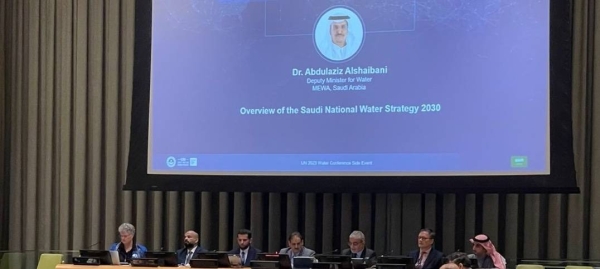
Artificial intelligence is well on its way to becoming a transformative force in the Gulf Cooperation Council area. The pace has been further accelerated by the rise of generative AI, which is projected to be a $24 billion market in the GCC by 2030.
However, the region’s stakeholders will need to play catch-up to unlock AI’s full potential. A range of factors must be in place to create a thriving AI ecosystem that supports innovation. Currently, the region faces obstacles in three areas.
First, while the GCC has seen significant funding commitments in AI infrastructure across connectivity, data centers, and cloud, it must accelerate progress, especially in data centers, where supply trails total demand by more than 40 percent.
For example, the market for high-performance computing data centers in Saudi Arabia alone is projected to grow from $200 million to $300 million by 2030.
To accommodate higher-density requirements, data centers around the world are undertaking HPC fit-outs using specialized chips. The resulting supply shortage threatens to impede growth. Indeed, the lead time for chip orders in the region is two years.
Second, GenAI uses foundational large language models trained on publicly available data to generate insights. The real value may lie in training these LLMs on an organization’s own datasets.
However, companies typically must undertake a series of time-consuming steps — including, in some cases, reinforcement learning from human feedback — to make raw data usable.
An additional hurdle involves concerns about global regulations on data privacy, access, and copyright. Consider that 27 percent of organizations around the world have banned the use of GenAI altogether.
Third, GCC tech companies seeking to scale up face a talent gap. To date, they have found it difficult to attract specialized tech talent for roles such as machine learning engineers, cloud architecture designers, and data scientists.
The region’s universities are producing competitive graduates, but most companies still source talent from global tech hubs such as Bangalore, London, and Silicon Valley.
Beyond lucrative salaries, these candidates have become accustomed to packages that include equity-linked compensation, flexible working policies, and values-based recruitment. GCC companies have yet to embrace these practices, putting them at a disadvantage.
Elevating the region’s AI ecosystem will require targeted action by the region’s private and public sectors across these three areas.
The AI landscape is evolving quickly, fueled by seemingly continuous advancements in GenAI. The GCC could be well positioned to capture its share of the market.
Prateek Chauhan, Diana Dib, Chady Smayra & Hani Zein
GCC tech champions must adopt an interoperable infrastructure that seamlessly connects both Eastern and Western technologies to ensure adaptability, scalability, and resilience in an ever-evolving tech landscape.
They could address chip shortages either by sourcing from alternative vendors or using cloud services that offer graphic processing units “as a service.”
Companies also need to strengthen their data privacy measures to give customers confidence in how data is handled — for instance, by building gateway LLM architectures that use enterprise datasets in a secure and effective way.
Regional tech leaders can bridge talent gaps through global acquisitions and deploy low-code, no-code, and generative-code tools to empower a broader talent pool.
Meanwhile, regional governments can help remove obstacles to the ecosystem’s development. To ensure the GCC has the necessary infrastructure, they could craft policies and incentives supporting investment in critical hardware and the establishment of HPC data centers to meet local demand.
Regional governments could also aggregate national data and make it available for companies to train and fine-tune LLMs.
Given broader concerns about the accuracy and reliability of AI models, regional policymakers must take a holistic approach to regulating the use of AI. They will need to strike a balance among competing priorities.
For example, setting policies and frameworks that govern data privacy, copyright, and Internet protocol without stunting innovation in AI application development could improve the ability of both local tech champions and the region to promote adoption.
One path would be for government leaders to participate in setting global tech and AI standards rather than simply following them.
Last, they could reimagine the education ecosystem, from K-12 to university, to produce a sufficient supply of data scientists, experts, and tech leaders.
The AI landscape is evolving quickly, fueled by seemingly continuous advancements in GenAI.
The GCC could be well positioned to capture its share of the market — if private companies and public sector leaders can move forward collaboratively and with a sense of urgency to support growth and innovation.
• Prateek Chauhan is principal, and Diana Dib, Chady Smayra, and Hani Zein are partners at Strategy& Middle East, part of the PwC network.
Disclaimer: Views expressed by writers in this section are their own and do not necessarily reflect Arab News" point of view












